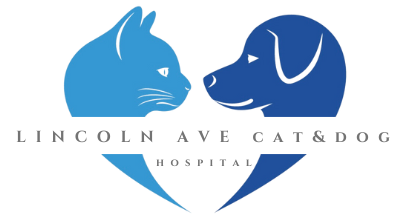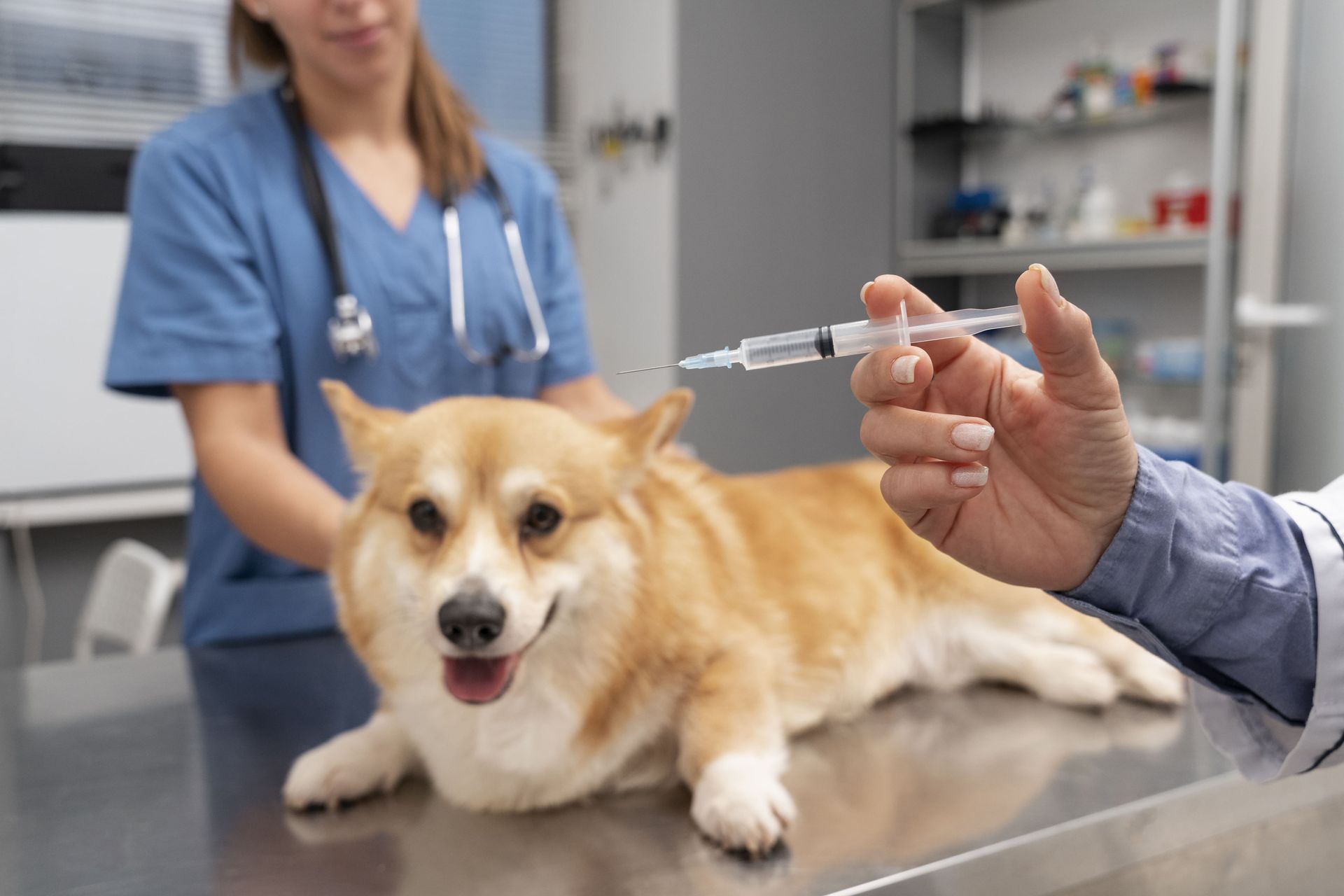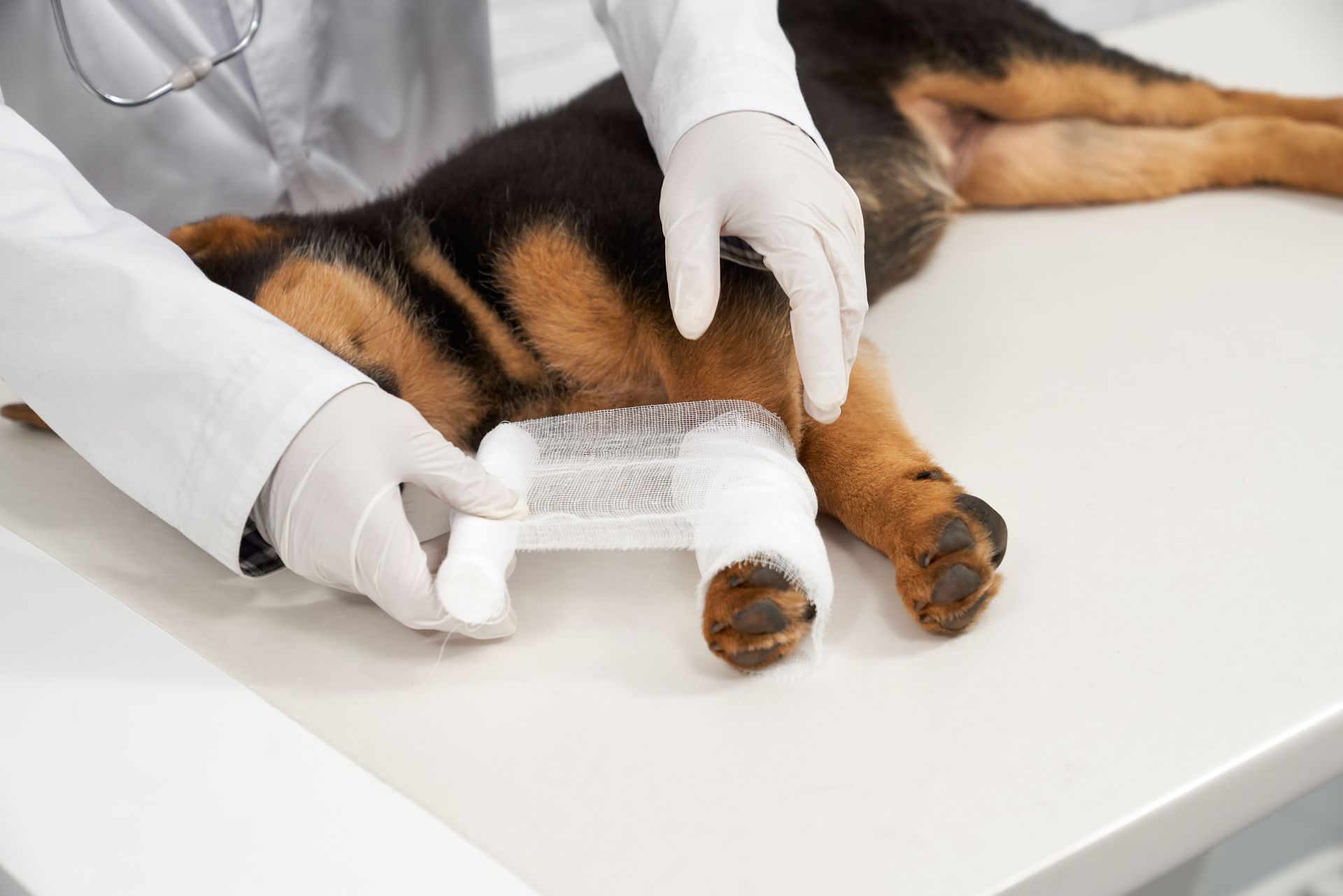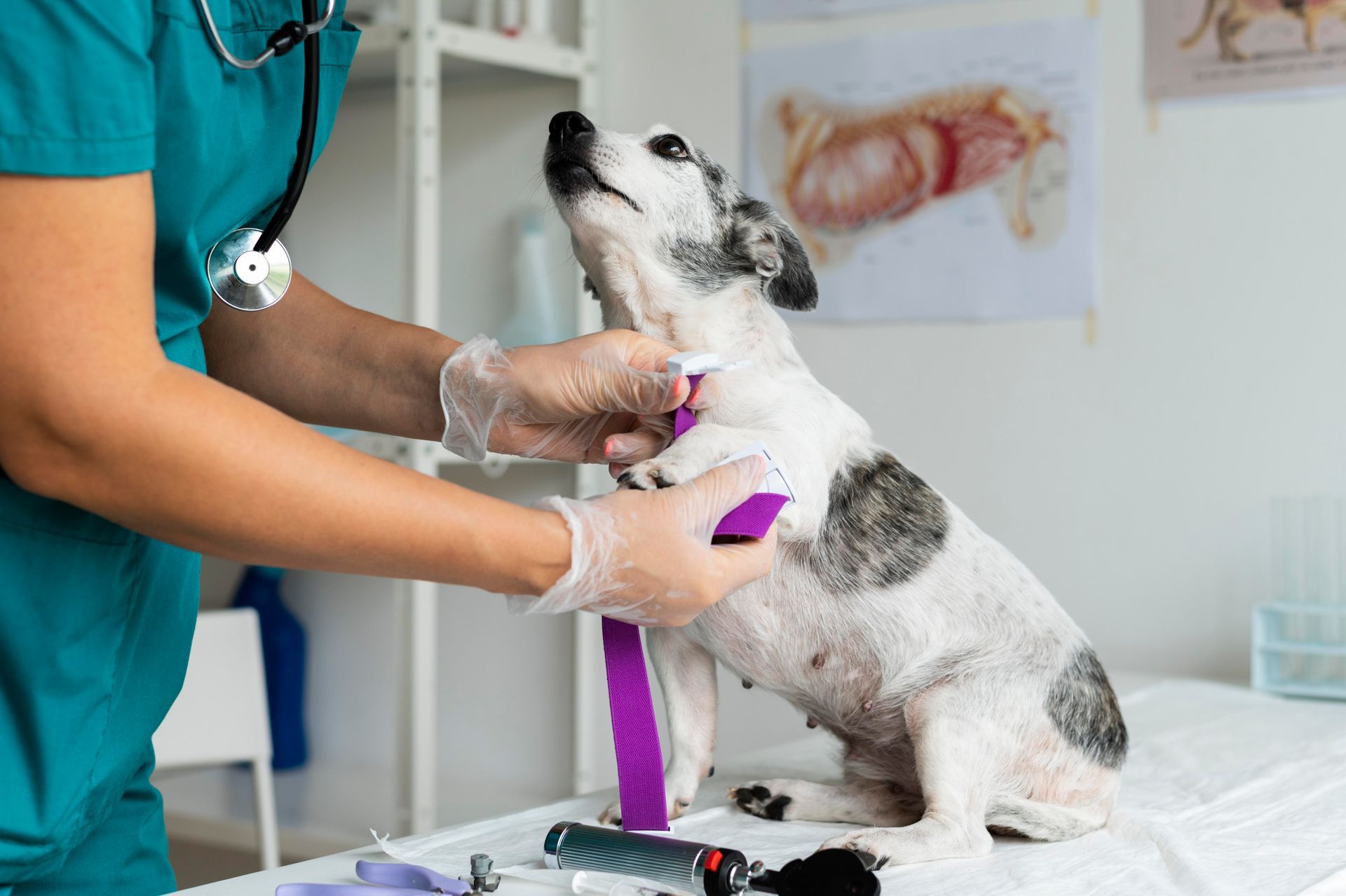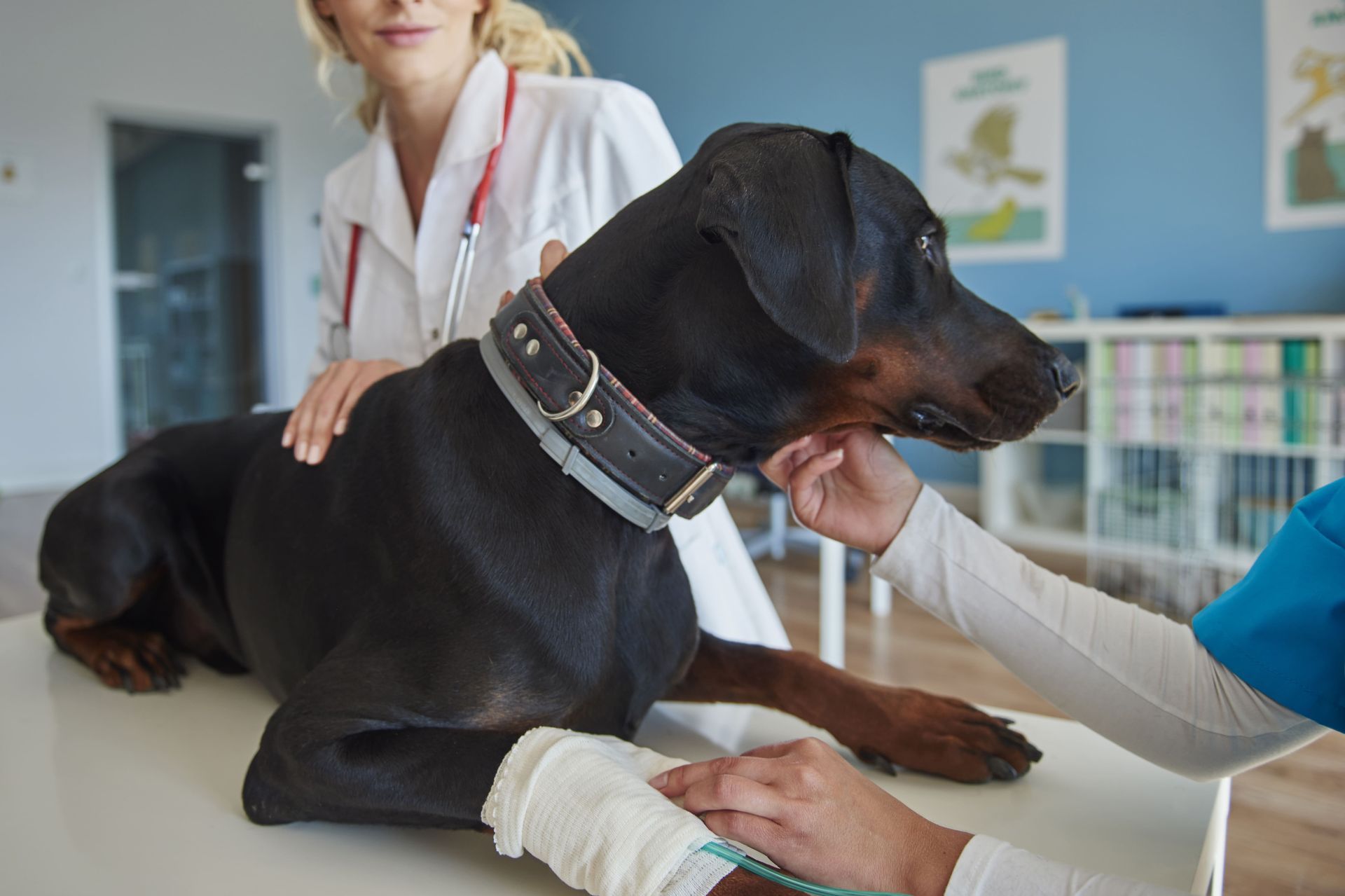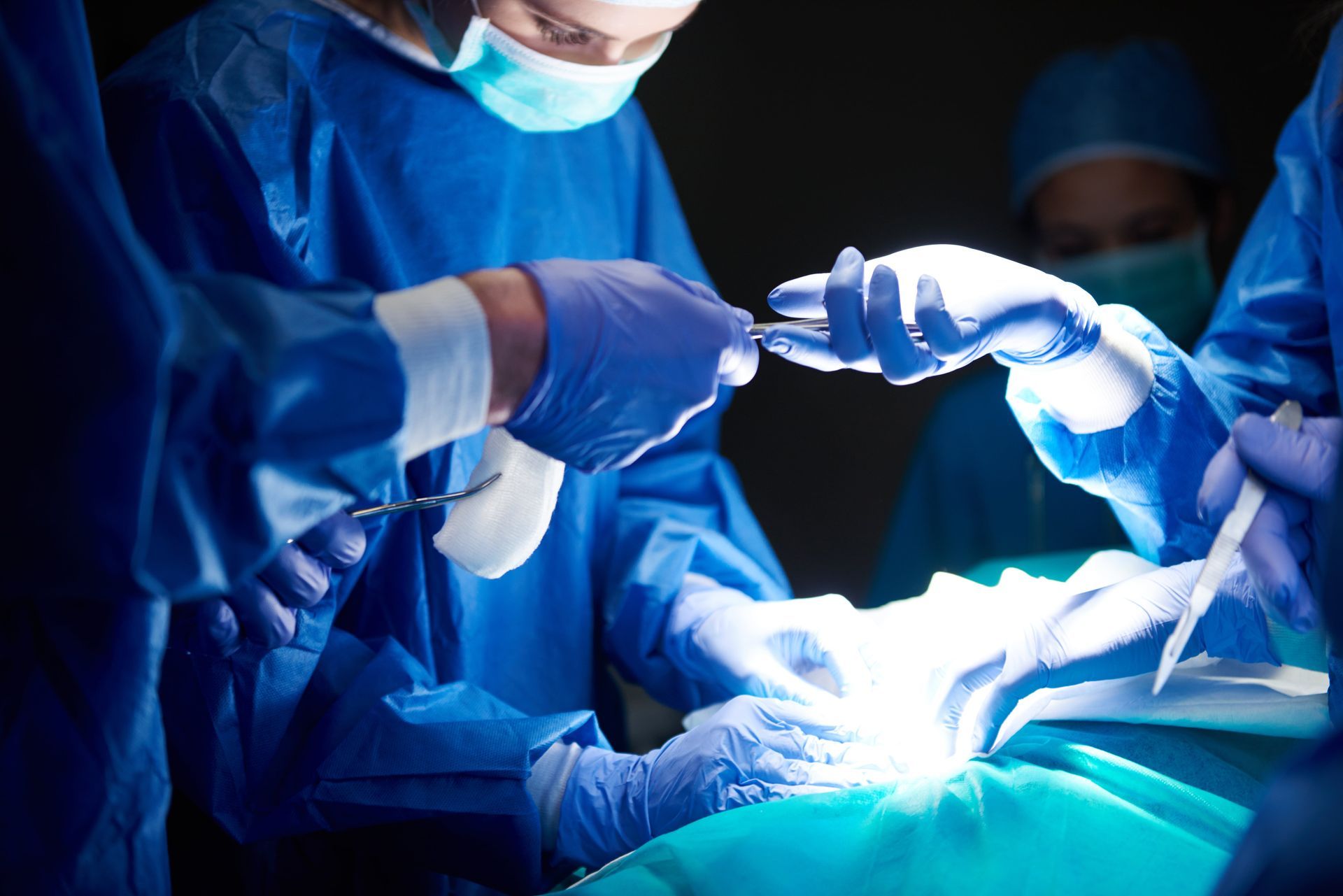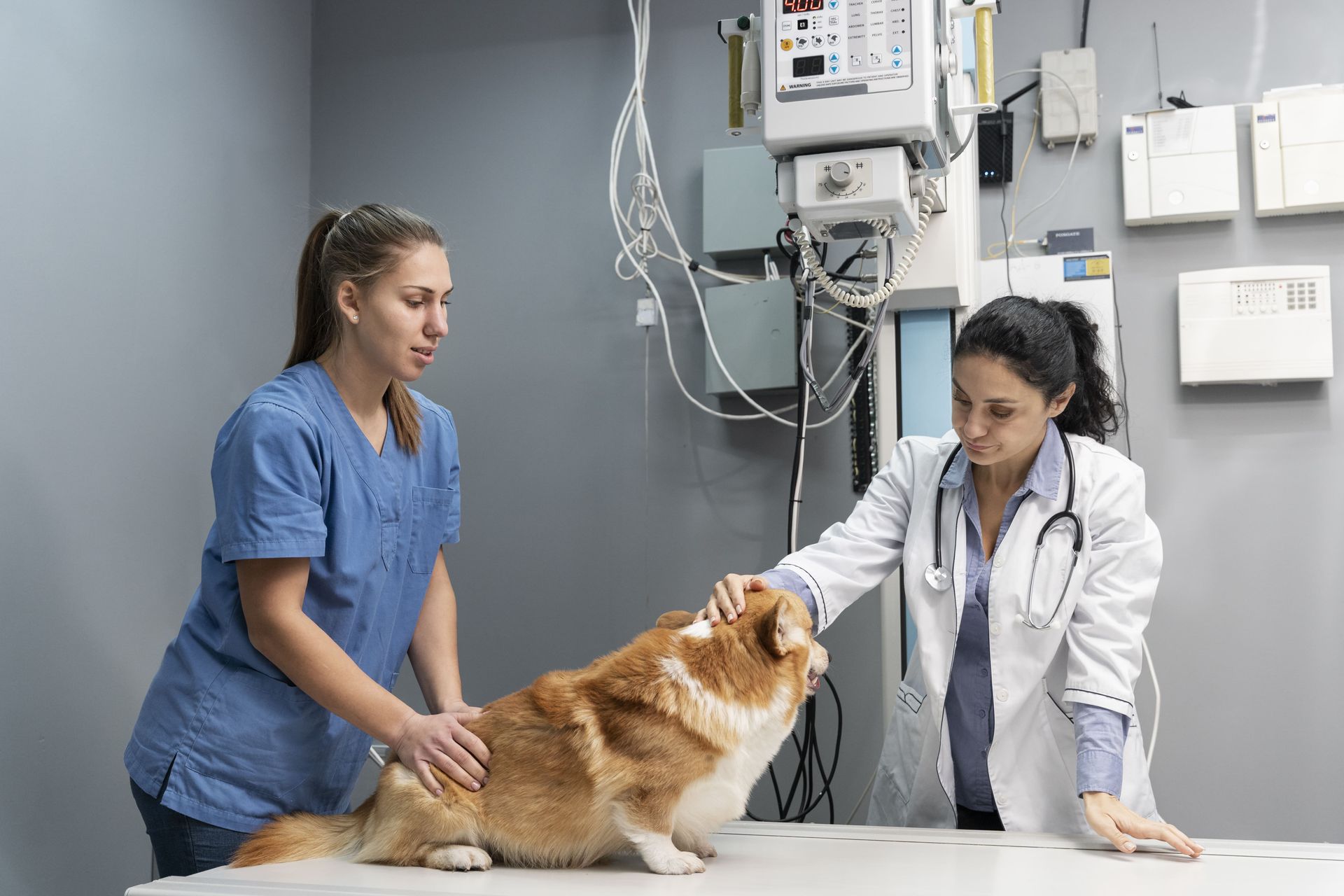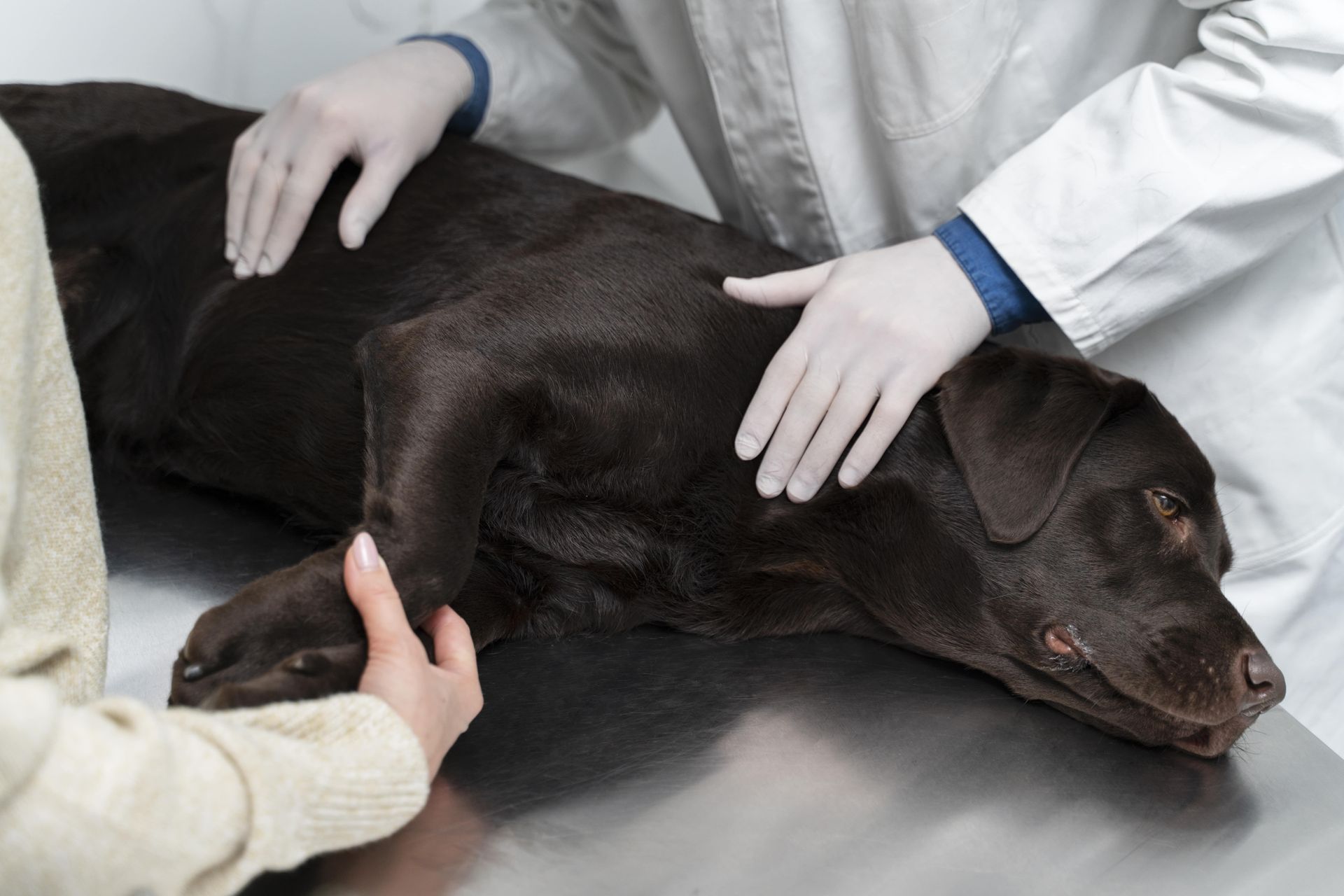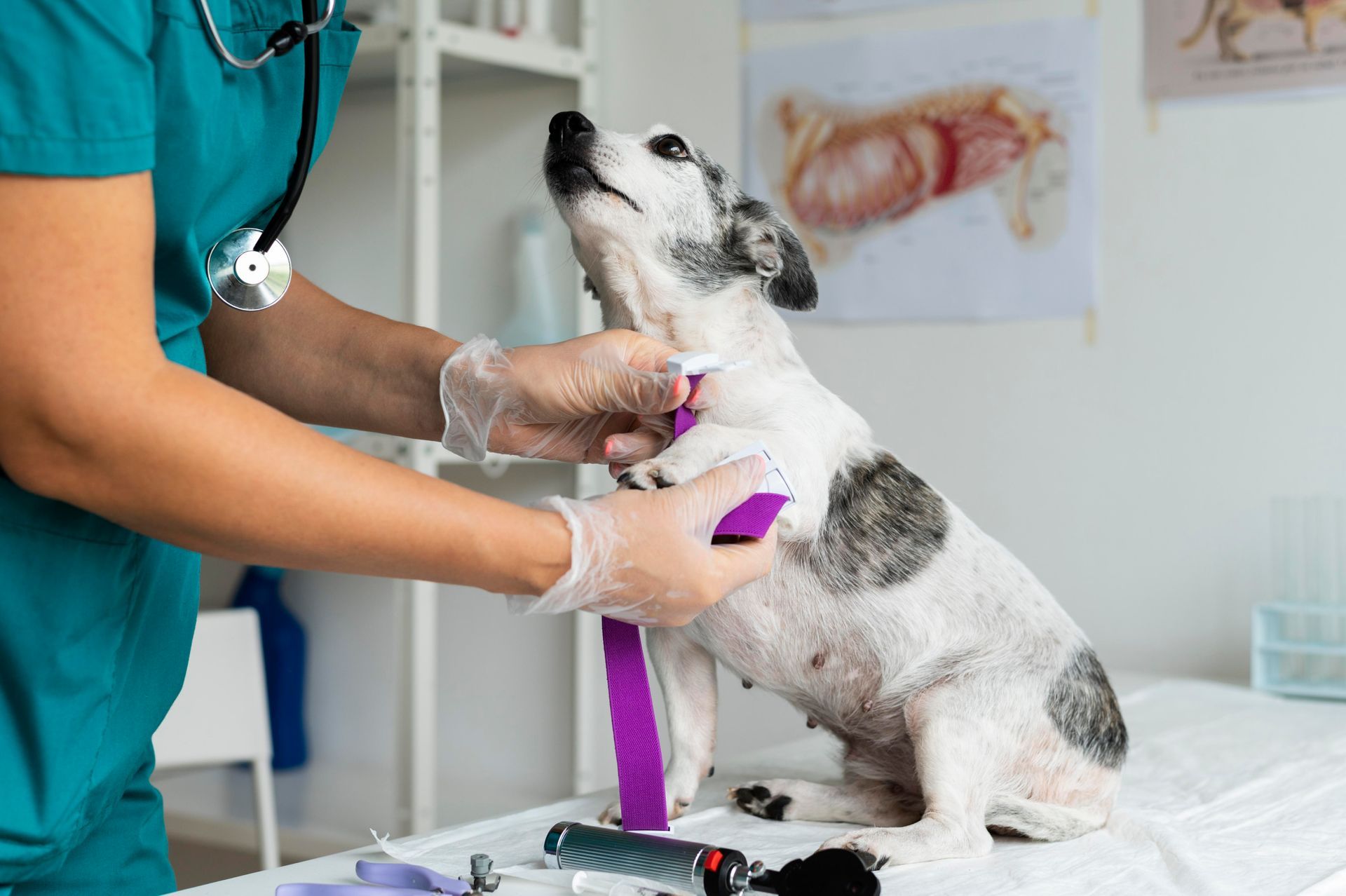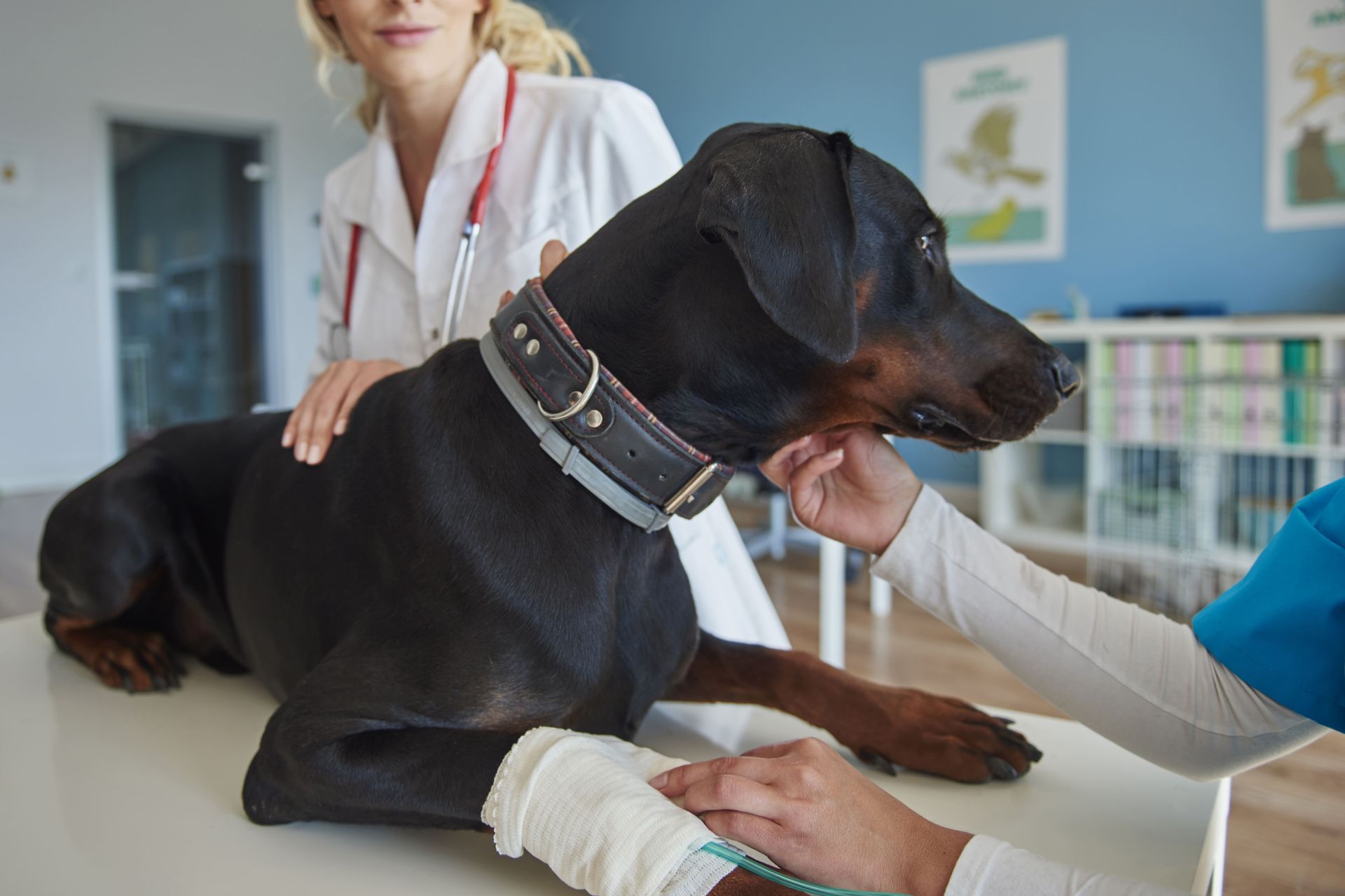What Does Advanced Orthopedics Involve in Veterinary Care?
As pets become more like family than ever before, veterinary medicine has taken bold strides to meet their growing needs, and advanced orthopedics is leading the charge. Imagine your dog bounding across the park again after a knee injury or your cat gracefully leaping from the couch to the windowsill post-surgery. This isn’t wishful thinking, it’s the result of cutting-edge orthopedic care tailored specifically for animals. From digital X-rays that reveal the tiniest fractures to surgical techniques that restore full mobility, advanced orthopedics is transforming the way we treat musculoskeletal issues in pets. At Lincoln Avenue Cat & Dog Hospital, we believe every animal deserves not just treatment, but a full return to joyful, pain-free movement. So what exactly goes into orthopedic care for pets? Join us as we explore the powerful blend of diagnostics, surgery, and rehabilitation that defines the future of veterinary medicine and keeps our four-legged companions living their best lives.
Understanding the Basics of Veterinary Orthopedics
Orthopedics in veterinary care focuses on diagnosing, treating, and managing disorders of the musculoskeletal system. This includes bones, joints, ligaments, muscles, and tendons in animals. Our dedicated team at Lincoln Avenue Cat & Dog Hospital is equipped to handle these complex cases with precision and care.
Advanced orthopedics addresses a wide range of conditions, from simple fractures to complex joint disorders. It's essential for maintaining mobility and enhancing the quality of life for pets. As such, it involves a collaborative approach among veterinarians, owners, and rehabilitation specialists.
At our hospital, the foundation of advanced orthopedic care lies in understanding the unique anatomical and physiological characteristics of each species, which significantly influences treatment approaches and outcomes. Every animal is different—so their treatment must be, too.
Role of Diagnostic Imaging
Diagnostic imaging, such as X-rays, CT scans, and MRIs, is essential in advanced orthopedics. These tools help veterinarians accurately identify the extent and location of injuries, facilitating precise treatment planning. By providing detailed images, diagnostic imaging allows for more accurate assessments of conditions like hip dysplasia and fractures.
One of the most impactful tools in orthopedics is the X-ray, which has been used for decades to reveal insights into a pet's musculoskeletal health. With advancements like digital radiography, the level of detail and precision in diagnosing conditions has significantly increased.
Advanced imaging technology is crucial when designing tailored treatment plans, which are integral to improving recovery times and outcomes. By capturing high-resolution images, treatments can be more accurately aligned with the specific anatomical structure of the affected area, thus minimizing complications.
Advanced Surgical Interventions
When surgery is necessary, advanced orthopedics employs techniques like arthroscopy, minimally invasive procedures, and bone grafts to restore function and alleviate pain in animals. Such interventions require expertise and precision to ensure successful outcomes. Our surgeon, Dr. El'Akbawy, is highly skilled in these surgical procedures, bringing years of expertise to every operation.
A profound understanding of surgical anatomy and state-of-the-art techniques allows for sophisticated procedures that were once not possible. This progression in orthopedic surgery has paved the way for interventions that are less invasive with faster healing times.
Our team employs advanced orthopedic solutions like total hip and knee replacements, which can drastically improve a pet's quality of life. Skillful execution of such complex procedures is supported by meticulous pre-operative evaluations and post-operative care strategies.
By implementing techniques like Tibial Plateau Leveling Osteotomy (TPLO) or Femoral Head and Neck Ostectomy (FHO), we can provide relief from debilitating conditions, enabling pets to return to their normal activities. These procedures are considered particularly effective for addressing mobility issues resulting from severe joint damage.
Importance of Rehabilitation and Physical Therapy
Post-surgical rehabilitation and physical therapy play vital roles in the recovery process. Tailored exercises and therapies help improve mobility, strength, and flexibility, aiding animals in regaining normal function as quickly as possible. At Lincoln Avenue Cat & Dog Hospital, we incorporate personalized rehabilitation plans to maximize recovery.
Rehabilitation involves a combination of physical manipulation, like massage and hydrotherapy, to help restore movement and function. This process is crucial because it not only enhances recovery but also prevents secondary complications associated with inactivity.
A strong rehabilitation plan is often what separates temporary relief from long-term recovery. With advanced orthopedics, rehabilitation is not an afterthought; it’s a continuation of the healing process.
Effective rehabilitation programs are designed with the specific needs of the pet and their circumstance in mind. Factors such as age, condition severity, and overall health influence the type, extent, and intensity of the therapy.
Preventive Care and Long-term Management
Preventive care, such as weight management, nutrition, and regular check-ups, is essential for maintaining musculoskeletal health. Long-term management plans may also be necessary for chronic conditions to ensure ongoing well-being. Our hospital offers guidance on preventive measures tailored to each pet's needs.
A holistic approach to preventive care allows us to detect orthopedic issues early and intervene appropriately, thus extending the healthy and active life of pets. This means keeping a diligent eye on factors like diet, exercise, and lifestyle, which can profoundly influence joint health.
Proactive steps like teaching pet owners about home exercises, appropriate dietary supplements, and monitoring their pet’s physical activities can significantly enhance a pet's quality of life. Education is key, and we strive to make pet owners partners in their animal's healthcare journey.
Through the lens of advanced orthopedics, prevention isn't just about avoiding injury; it's about actively promoting musculoskeletal wellness for years to come.
Wrapping Up!
Advanced orthopedics in veterinary care integrates cutting-edge diagnostic tools and surgical techniques to address complex musculoskeletal issues in animals. This comprehensive approach requires skilled veterinary professionals who are committed to providing the highest level of care. At Lincoln Avenue Cat & Dog Hospital, we take pride in offering compassionate and innovative solutions that bring real results.
By understanding the roles of diagnostic imaging, surgical intervention, rehabilitation, and preventive care, pet owners can make informed decisions in collaboration with their veterinarians, ensuring a better quality of life for their beloved animals.
Whether it’s a sprained joint, a hip replacement, or a long-term mobility plan, advanced orthopedics provides the expertise and precision that modern veterinary medicine demands.
Frequently Asked Questions (FAQs)
Q-1. What conditions are typically treated through advanced orthopedics in veterinary care?
Ans: Conditions like fractures, joint dislocations, hip dysplasia, ligament tears (such as ACL injuries), and chronic arthritis are commonly treated through advanced orthopedic methods.
Q-2. How can I tell if my pet needs orthopedic care?
Ans: Signs include limping, difficulty standing up or lying down, reluctance to climb stairs or jump, swelling around joints, or any noticeable changes in mobility and behavior. Consult your vet for a thorough evaluation.
Q-3. Are advanced orthopedic surgeries safe for older pets?
Ans: Yes, with proper pre-surgical assessments and post-operative care, older pets can benefit greatly from orthopedic surgeries. Each case is carefully evaluated based on age, overall health, and specific condition.
Q-4. What is the recovery time after an orthopedic procedure?
Ans: Recovery varies depending on the procedure and the pet’s overall health, but most animals begin rehabilitation within a few days. Full recovery can range from several weeks to a few months, with regular check-ups and therapy.
